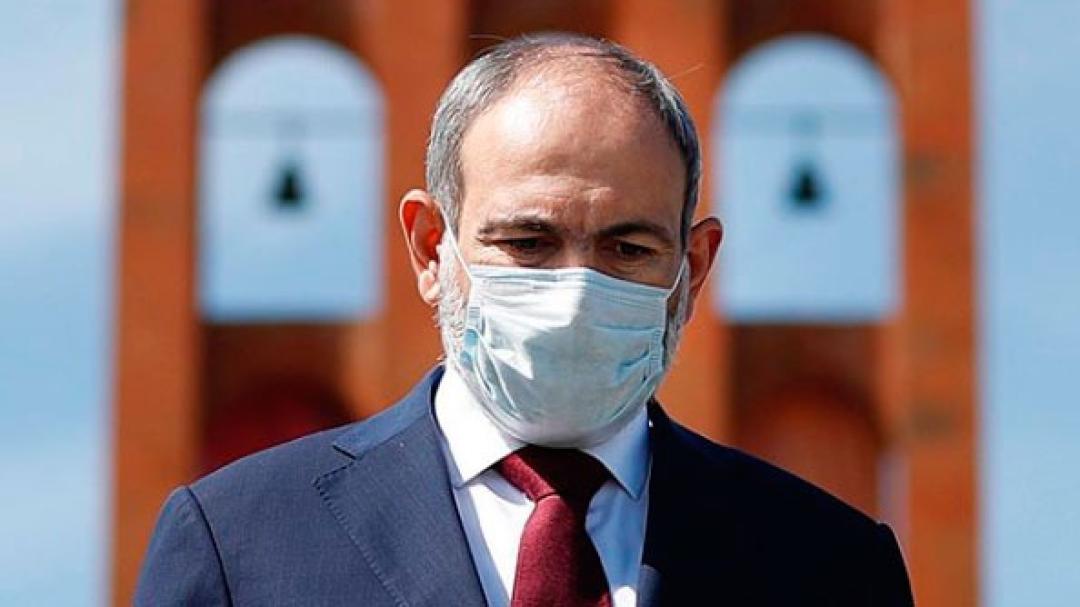
Pashinyan urges for a new Constitution; Gallup polls show that My Step still enjoys trust

On 5 July, on the occasion of the Constitution Day in Armenia, the country’s Prime Minister Nikol Pashinyan stated the need for an adoption of the new Constitution.
“Three times in the history of the Third Republic of Armenia our people adopted a new Constitution or constitutional amendments by referendum. However, the results… of [all of] those referendums were [not] considered trustworthy by society. The citizens of Armenia did not consider the decisions on adopting or amending the Constitution, nor did they consider the Constitutions so adopted as their own. This is the biggest systemic flaw in our state structure, because the Constitution should be an agreement of citizens on citizen to citizen and state-citizen relations,” he said.
“The analysis of a number of events, especially in the recent period, has led me to the conclusion that the citizens of Armenia often do not consider the country’s state system as their property, and do not see an organic connection of this system with their will. Although my position was that frequent changes to the Constitution subject the state system to inappropriate stress, [that] constant changes to the Constitution lead to uncertainty, the realization of the circumstances mentioned in the previous paragraph led me to the conclusion that our country needs a new Constitution, which should lead to a political system based on the free-will of our citizens,” he added, announcing that a nationwide referendum would be held in 2021 for the adoption of the new Constitution.
The first Constitution of the Republic of Armenia was adopted in 1995. In 2018 Armenia shifted to the parliamentary form of government in line with constitutional changes approved at a national referendum in 2015. According to the changes, the president of Armenia, whose powers are significantly curtailed, is elected for a term of seven years (instead of the previous five) by the Parliament. Presidents are limited to one term of office.
According to the 2018 Constitution, the president of Armenia is the head of state, embodying national unity and ensuring the observance of the Constitution and cannot be a member of a political party. Under the approved changes the president is to appoint a candidate for prime minister from the party or party bloc that wins parliamentary elections. If parliamentary forces are unable to agree on the candidacy of the head of government, Parliament is to be dissolved. The armed forces are subordinated to the government and the prime minister is the supreme commander of the armed forces in times of war.
On 22 June, Armenia's National Assembly adopted a string of amendments to the Constitution, designed to replace some members of the Constitutional Court. According to the new edition of Article 213 of the Constitution, the powers of the current chairman of the Constitutional Court Hrayr Tovmasyan and those judges who have been in office for a total of more than 12 years were terminated. The remaining judges will continue to work until this deadline (Caucasus watch reported).
Gallup polls reveal that My Step still enjoys large trust
On 3 July, the Marketing Professional Group, which is the only sociological organization in Armenia officially representing the Swiss survey organization Gallup International, published their results of the public opinion polls conducted in the country. According to the results of the polls, 85% of people surveyed approve of the activities of Prime Minister Nikol Pashinyan, 54.7% approve of the National Assembly, 67.9% approve of the work of the Armenian government, while only 22.7% approve of the work of the opposition.
The Armenian political scientist Hrant Mikaelyan expressed scepticism towards these results. “People are afraid to express their opinions, as in all countries, if they believe that this opinion differs from the majority opinion. At the moment, the public is hearing a lot of very strong appeals from the government, including from the top level. And that affects how people express their opinions,” he said.
He explained that Pashinyan’s high ratings were driven by the fact that the authorities continue to actively communicate with the public. “It is often said that the opposition controls large media resources. But if we talk about the media that the public normally consumes, it consists mainly of different YouTube channels, the prime minister’s live channels, and channels that are loyal to the authorities. A large part of society never learns about alternative points of view,” he added, noting that the weak trust in the Armenian opposition is an indicator of a weak party system in the country.
See Also


Armenia Records 5.9% GDP Growth in 2024, Missing 7% Goal

Yerevan Balances Strategic Ties with Both US and Russia, Says Foreign Minister

FM Mirzoyan: Peace Deal with Azerbaijan Is Within Reach

Pashinyan and Erdogan Hold Call, Reaffirm Commitment to Ongoing Dialogue

